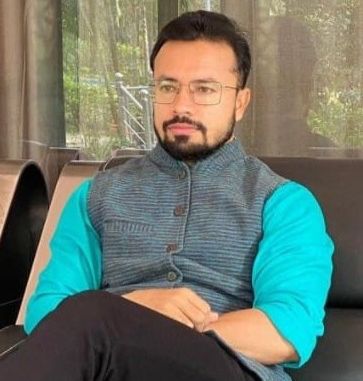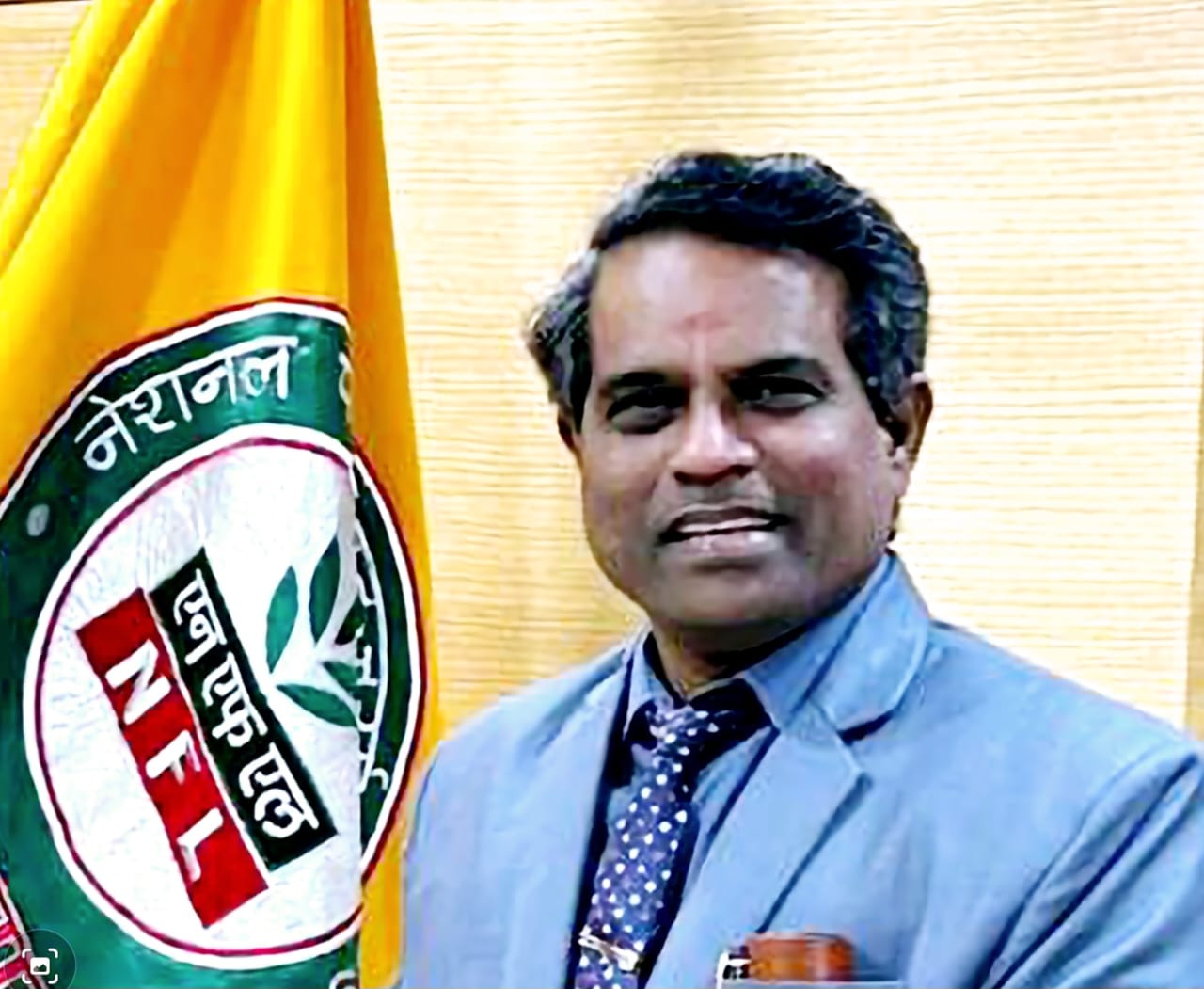Nandanwar's Dantewada: A Tale of Transformation
Author: BI Bureau

Raipur: Dantewada, once troubled by Naxalite unrest, is now undergoing a remarkable transformation. The region's past, overshadowed by conflict, is giving way to a new narrative of progress and development.
Vinit Nandanwar, the District Collector of Dantewada, has been a key figure in steering this positive change. In an exclusive interview with Dr Navneet Anand, Editor-in-Chief, Bureaucrats India, he provides insights into the journey of Dantewada – from a region grappling with Naxal challenges to one that is now embracing positive change and rejuvenation.
Q.1. What inspired you to become an IAS Officer? And how challenging is it to work in Naxal-affected districts?
During my Junior High School years, my uncle consistently encouraged me to aspire to become a Collector. However, as the years passed, I discovered the vast opportunities within the Indian Administrative Services. I realized that the job not only offers substantial professional growth but also provides a level of satisfaction unparalleled in any other field. Having dedicated a decade to serving as an IAS Officer, I find immense joy in the moments when I can extend a helping hand to those in need, which reaffirms my commitment to this impactful profession. In 2004, upon completing my graduation, I sought opportunities in the teaching field in Chhattisgarh. Meanwhile, my initial attempt at UPSC ended in disappointment after the interview. Along the way, I gained valuable experience while working in the challenging environment of the smelter plant at BALCO. Despite setbacks, recognizing my potential for more impactful work motivated me to pursue my long-standing dream of becoming an IAS. I resigned from BALCO and relocated to New Delhi to prepare arduously for UPSC Examinations. This dedicated effort culminated in my successful attainment of the position of an IAS Officer in 2013. I've learned valuable lessons from my failures, and it took me four attempts to get selected in UPSC.
Before assuming my current position, I served as the Collector in Sukma district for two years, followed by a tenure of 1.5 years in Dantewada. Operating in Naxalite-affected regions, characterized by challenging terrain and connectivity issues, has posed significant hurdles to our development efforts. Naxalite opposition has obstructed the construction of roads and the provision of essential services like electricity, presenting formidable challenges. Recognizing the slow and arduous nature of development in such areas, I initiated a strategic approach to contribute to positive changes. Drawing from my experience and understanding of the needs of the people, having come from the small town of Jagdalpur, I committed myself to addressing the challenges faced by the communities in Sukma and Dantewada.
Q.2. Dantewada District is known for its tribal art, culture, and traditions. What initiatives have been undertaken, considering the tribal context?
Over the past 3.5 years as the Collector, our efforts have yielded substantial outcomes. In collaboration with the local administration, we have issued over 55,000 "Jati Praman Patra" (Caste Certificates) in both districts. In Dantewada, we successfully brought electricity, constructed roads, and provided essential facilities such as education, nutrition, and healthcare in several Gram Panchayats. Education-centric programs like ‘Chhu Lo Aasmaan Sanstha’ have made significant strides. Sixty-five children were selected in the National Eligibility Test(NET), and we have expanded our programs to include classes for the UPSC and state PSC exams, as well. Recognizing the need for proper guidance in competitive exams, we have initiated a "Guidance Program" for the local youth. To address land-related disputes, we launched the "Dispute Free Village" campaign, engaging directly with the community through camps and local initiatives, which has positively impacted the lives of over 16,000 individuals, resolving caste-based identity issues, facilitating Hajj pilgrimages for 200 more people, and resolving numerous revenue matters. These endeavors earned us the prestigious ‘Nexus of Good’ Award for our contributions to the district.
Q.3. There’s often mention of “Atulya Dantewada.” What is the concept behind Atulya Dantewada?
We aim to alter the perception of Dantewada by initiating projects like Atulya Dantewada, which include tourism development ventures like riverfronts and corridors. Through tourism, not only do we aim to showcase natural beauty but also generate employment. One such place, Barsoor, a historical site, has immense tourism potential and can boost the local economy. Our projects are nearing completion in the area. Dantewada, formerly called Lalgarh, is turning into a tourism hub. We've been working hard on "Atulya Dantewada," by developing a riverfront, Mata Danteshwari corridor, Tourism Centre, and Tribal Museum. There's also Naag Devta Mandir, a popular historical spot. Dhokal is also being upgraded, along with special emphasis on Safety, for which we're working closely with the police. Local guides are also getting trained, and we're promoting tourism in places that are now safe to visit.
Q.4. You’ve taken successful education-based initiatives for NEET and JEE. How did you come up with them?
While working in Dantewada, my hometown, I noticed the struggle of Class-12 students, in pursuit of scoring higher grades at school while focusing on entrance exams. I felt a strong connection, having come from the same place, and studied in a government school. This insight led me to reach out and offer a helping hand to the local students. We extended all possible support to address their specific needs. We initiated a dropper batch. Our efforts went beyond academics; we planned for their food, accommodation, and a suitable study environment. The results were truly gratifying, 28 out of 30 dropper-students secured positions in NEET, JEE. This encouraged us to expand our efforts to run multiple dropper batches. We conduct classes with month-wise and day-wise revision strategies, mirroring the preparation approach for UPSC exams. Collaboration with local panchayats plays a crucial role in supporting the students' education. We follow a thorough selection process to resource teachers from premiere institutions. The wait-list also ensures backup options.
Q.5. What are the specific Challenges in implementing such initiatives in LWE-affected areas?
In my approach to administration and development, I prioritize sustainability over innovation. Identifying and detailing specific areas of focus is crucial. Changing the behavior of people in tribal or small areas poses a significant challenge. In Sukma, I worked on the "Girda Para" project, a hydro-based pumping initiative that eliminated water and power scarcity. Collaborating with Professor Dr. Puneet Singh from the Indian Institute of Science, we designed a hydraulic pump that utilizes the flow of water to irrigate fields without additional resources. The initiative initially faced resistance from the villagers, and despite Dr. Puneet's assurance of minimal land usage, the process was challenging yet ultimately rewarding. Gradually, we persuaded locals to contribute small land-portions for a tank at the highest point, to facilitate an irrigation canal. Eventually, people started getting involved after recognizing the benefits of the project, and even the district collector himself came to inspect. I visited the site about 70 times annually. The success of the project expanded irrigation, fostering a stronger connection between me and the villagers. A heart-touching incident occurred when a man named Desi Ram, aware of his impending transfer, visited me. His wife, initially hesitant to engage in any work, presented me with a bag of vegetables, as gratitude. I later learned that in tribal areas, offering the first harvest to the deity is a significant tradition. This was indeed a great honor for me, and I remain thankful to Desi Ram.
The success of the project led to the Chhattisgarh Government signing an MoU with the Indian Institute of Science. The project has expanded beyond Dantewada and now operates in Pendra, Marwahi, Sukma, and four other locations.
Q.6. You are a fitness enthusiast and managing time for everything must be challenging. How crucial is it to stay fit along with the Profession?
Managing time is an art, and we often waste it on unnecessary things. Inspired by a statement from Swami Vivekanand, I prioritize spending an hour on health. In my demanding profession, staying fit is crucial. Exercise helps me focus on maintaining a healthy lifestyle. To those who follow me, I appreciate the opportunity to share my thoughts. This interaction with Bureaucrats India is my first, and I'm grateful for the initiative. Learning from the stories of dedicated bureaucrats motivates both the youth and the professionals. Thank you for providing a platform to bring these stories together. I look forward to future collaborations, sharing more stories, and contributing to motivating others.
Q.7. Please share your views about Bureaucrats India.
This interaction with Bureaucrats India is my first, and I'm grateful for the initiative. Learning from the stories of dedicated bureaucrats motivates both the youth and the professionals. Thank you for providing a platform to bring these stories together. I look forward to future collaborations, sharing more stories, and contributing to motivating others.



